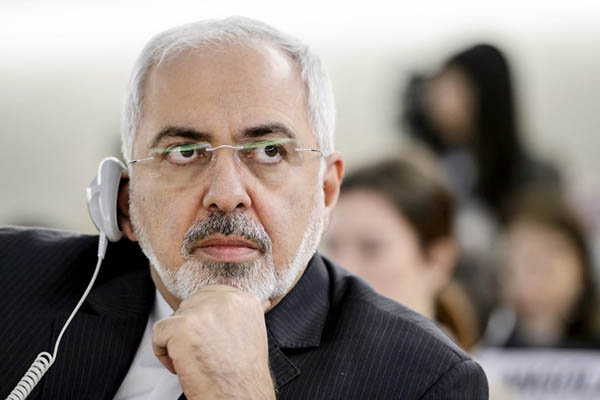
Iran Foreign Minister Javad Zarif. Fabrice Coffrini—AFP
Tehran warns that the military action could spill over into neighboring countries.
Saudi Arabia’s airstrikes on Shia rebels in Yemen triggered fury from Iran on Thursday, with officials warning that the military action threatened to spill over into other countries.
The bombing of the Houthi rebels, who are said to be backed by Iran, came days after Yemen seemed headed toward all-out civil war as the militia advanced toward the southern city of Aden.
Relations between Iran and Saudi Arabia have been strained for years, notably over the civil war in Syria, but the crisis in Yemen has put their interests sharply at odds again. With the escalation to airstrikes analysts said Yemen could see the region’s Sunni-Shia rivalry, chiefly between Saudi and Iran, pull both sides deeper into the country’s months-long instability.
The Saudi action appeared designed to halt a Houthi surge that had seemed destined to allow the Shia minority to seize control of the whole of Yemen, Saudi Arabia’s Sunni-majority neighbor. Riyadh said it was acting to restore the government of President Abedrabbo Mansour Hadi, who has been holed up in Aden since fleeing the rebel-controlled capital Sanaa last month.
However, Iran’s Foreign Minister Mohammad Javad Zarif said the strikes would lead only to greater loss of life. “Military action from outside of Yemen against its territorial integrity and its people will have no result other than more bloodshed and more deaths,” he told Al-Alam television, Iran’s Arabic-language channel.
Iran has denied playing any part in the rebel power grab in Yemen, but government officials have criticized Hadi for revoking an offer to resign and accuse him of stoking the crisis.
Top commanders from Iran’s elite Revolutionary Guards have also alluded to the crisis, declaring that the Islamic revolution of 1979 is now “being exported” across the region, naming Yemen, Syria and Iraq as new spheres of interest.
The comments from Zarif, who is in Switzerland for talks with U.S. Secretary of State John Kerry on Iran’s disputed nuclear program, echoed earlier condemnation in Tehran. Foreign ministry spokeswoman Marzieh Afkham, calling for an immediate halt to the strikes, said Saudi had taken “a dangerous step” that violated “international responsibilities and national sovereignty.”
Although Iran moved after President Hassan Rouhani’s election in 2013 to improve ties with Saudi Arabia, the kingdom’s oil policy, choosing not to cut output despite a price fall, has hit Tehran’s finances hard and caused a rift.
Riyadh has also been angered by the prospect of a nuclear deal between Iran and major world powers. Firas Abi Ali, of the London-based analysis firm IHS, said Saudi intervention “carries a high risk of becoming open ended” because of the fragmentation of Yemen’s army and institutions.
“The Iranians are likely to assess that they need to increase their support to the Houthi,” he added.
However, Ali Vaez, senior Iran analyst at the International Crisis Group, said Tehran’s hard response may be an effort to stop their differences with Riyadh from getting out of hand. “The Iranians want to prevent their cold conflict with the Saudis from deteriorating into a hot one because of the crisis in Yemen,” he said.
The head of the Iranian parliament’s national security and foreign policy committee, Alaedin Boroujerdi, accused Saudi of “fanning the flames of a new war in the region.”
“The smoke of this fire will go into the eyes of Saudi Arabia as war is never limited to one place only,” he said, calling for the strikes to stop and urging a political solution.
